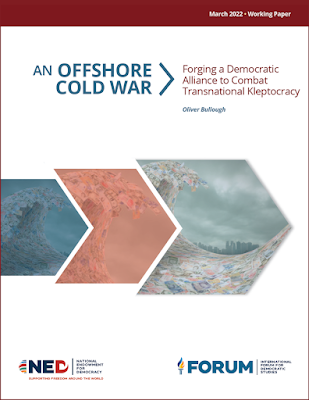25 Years on: Changes and Constants
29 March 2022
23 March 2022
The Sentry: Legal Tender? The Role of Sakunda and the Reserve Bank of Zimbabwe in Command Agriculture
Possibly unlawful payments from Zimbabwe’s central bank to presidential advisor Kudakwashe Tagwirei’s companies formed up to one-third of the $280 million his firms received while running the Command Agriculture program, according to new analysis by The Sentry.
From 2016 to 2019, Tagwirei’s firm Sakunda Holdings ran Zimbabwe’s Command Agriculture program, which was intended to boost agricultural production through the provision of inputs such as seed and fertilizer to commercial farmers. Sakunda—an oil trading company—was appointed to run the billion-dollar project without an open tendering process.
The Sentry’s investigation found that, over the course of the three-year program, Sakunda received $1.28 billion total—$230 million in hard currency and over $1 billion in Treasury Bills—while providing inputs worth $1 billion: an apparent surplus of $280 million.
One of the Treasury Bills was improperly redeemed at a favorable exchange rate by the Reserve Bank of Zimbabwe (RBZ) after a new law had reduced the US dollar value of such assets. While others saw the US dollar value of their Treasury Bills fall, the RBZ protected Tagwirei’s asset from this reduction in value when it was cashed in: the central bank sent more Zimbabwean dollars to his firms than it was obliged to by the new law. This decision was worth—in US dollars—at least $50 million, and perhaps up to $100 million, for the oil tycoon’s companies. The International Monetary Fund reportedly blamed the Reserve Bank’s treatment of this Treasury Bill for bloating the money supply and contributing to inflation and the rapid decline in the value of Zimbabwe’s new currency from mid-2019.1
Sakunda, which denies any wrong-doing, testified in Zimbabwe’s Parliament that it received the favorable rate so that it could repay foreign suppliers—particularly of chemicals—in hard currency.2 However, it appears that the Treasury Bill was given a preferential exchange rate partly to allow one of Tagwirei’s firms to pay the government for some gold mines and a Zimbabwean military-controlled company for its share of a platinum mining joint venture with a Russian conglomerate. In effect, the publicly owned RBZ was printing money for private companies to buy publicly owned assets.
Command Agriculture was the product of a behind-closed-doors culture: the procurement process for this billion dollar program, the preferential treatment of the Treasury Bill, and the selection of recipients of inputs were all hidden from public view. The Sentry’s recommendations therefore include procurement transparency measures that could allow Zimbabwean citizens to see how their money is spent.
02 March 2022
An Offshore Cold War: Forging a Democratic Alliance to Combat Transnational Kleptocracy
Transnational kleptocracy is a growing threat to democracy with urgent consequences for national security, human rights, and human development. Kleptocracy combines 19th-century autocracy with 21st-century finance, which empowers dictators to enrich themselves and their cronies, hide the proceeds offshore, and use that wealth to corrode both foreign and domestic institutions. While authoritarian leaders divert public resources to their own pockets and park them overseas, democracies have largely focused on their internal problems rather than acting as a united front to address this peril effectively.
Kleptocratic forces exploit this disunity to cement their repressive rule at home and advance their own, anti-democratic agendas overseas. Year after year, Freedom House’s annual “Freedom in the World” rankings show that the countries that are deemed “least” free in their ranking are often those that have heavily entrenched kleptocratic networks that have taken over as the system of governance. Traditional forms of accountability are curtailed, coopted, or eliminated as kleptocratic regimes seek to prevent their theft from being exposed by journalists and their governance from being monitored by civil society organizations.
Democracies may believe that their institutions are strong enough to resist kleptocratic influence, but the evidence warns otherwise. Russia under President Vladimir Putin, for example, has used massive wealth stolen from its people to coopt foreign leaders and businesses, spread large-scale and corrosive disinformation campaigns, and interfere in democratic elections. The focus on the strength of democratic institutions misses a larger point: as more kleptocratic wealth infiltrates democracies, it corrupts individuals and members of government, which will eventually degrade independent institutions.
Many democracies appear to be waking up to the threat posed by transnational kleptocracy and enacting policies designed to combat it. The Biden administration in the U.S. has made tackling corruption a top priority, and the U.K. and EU have signaled intentions to do the same. But because kleptocracy is a transnational, networked, and entrenched form of corruption, individual or atomized responses are insufficient. Democracies must be unified and networked in their fight against it. Transnational kleptocracy will always identify weaknesses in the global network of regulation and squeeze through them, meaning the whole network must be strengthened if it is to resist infiltration. Otherwise, the money would just move to the country that remains open to it, and the problem would continue.
To fight kleptocracy effectively, we must act together. Democracies should focus on their shared fundamental values—political and personal freedom, free markets, free speech, independent judicial systems, and freedom of expression—to develop a unified response to this top order challenge, much as they did during the fight against communism during the Cold War. That sense of democratic solidarity, where all major political parties understood and recognized the threats communism posed to democratic values, should be repurposed and reinvigorated to fight kleptocracy.
As Oliver Bullough warns in this paper, the very future of democracy is at stake.

